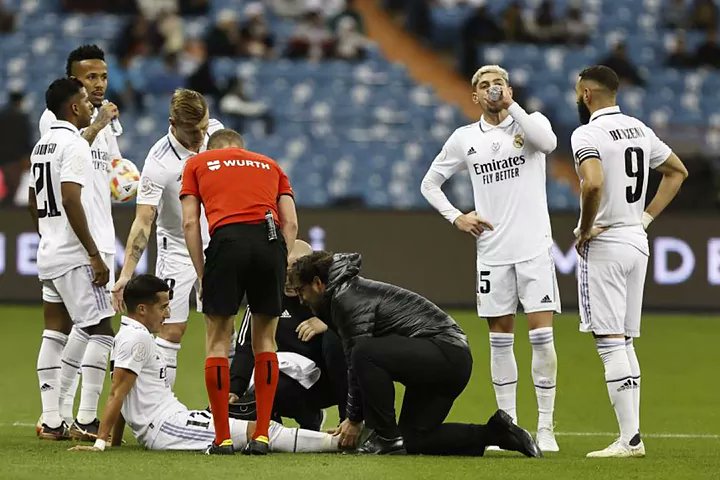
The Whistle’s Call: How to Become a Football Referee and Ascend Through the Ranks
Football, the world’s most beloved sport, captivates billions with its drama, skill, and unpredictable outcomes. While players and coaches often steal the limelight, an equally crucial figure ensures the beautiful game remains fair and orderly: the football referee. Far from being mere rule enforcers, referees are custodians of integrity, peacekeepers, and athletes in their own right, making split-second decisions under immense pressure. If you’ve ever watched a match and felt the urge to contribute beyond the stands or the pitch, perhaps the whistle is calling your name.
Becoming a football referee is a challenging yet incredibly rewarding journey, demanding not just an encyclopedic knowledge of the Laws of the Game but also exceptional fitness, mental fortitude, and impeccable communication skills. This article will guide you through the process, from your first steps to the pinnacle of international officiating, highlighting the "stats" and metrics that define your progression.
The Genesis of a Whistleblower: Your First Steps
The journey to becoming a football referee typically begins at the grassroots level, within your local football association or federation. While specific requirements may vary slightly by country (e.g., The FA in England, USSF in the USA, PSSI in Indonesia), the fundamental path is remarkably consistent.
-
Meet Basic Eligibility:
- Age: Most associations require candidates to be a minimum of 14 or 16 years old. There’s usually no upper age limit, provided you can meet the physical demands.
- Interest: A genuine passion for football and a desire to contribute to the game’s fairness are paramount.
-
Locate Your Local Association: The first practical step is to find the official website or contact details for your regional or national football governing body. They will outline the specific courses and prerequisites for new referees.
-
Enroll in an Introductory Referee Course: This is the cornerstone of your training. These courses typically combine classroom learning with practical on-field sessions.
- Classroom Content: You’ll dive deep into the 17 Laws of the Game (LOTG), learning their nuances, interpretations, and practical applications. This includes everything from offside and fouls to advantage, misconduct, and set pieces. You’ll also learn about refereeing mechanics, positioning, and decision-making.
- Practical Sessions: These are crucial for developing your on-field presence. You’ll practice whistle techniques, flag signals, movement patterns, and how to manage various match situations.
- Assessment: At the end of the course, you’ll typically face a written exam on the LOTG and a practical assessment of your on-field skills. Passing these is your first significant "stat" – a demonstration of foundational knowledge.
- Background Check: For those officiating youth matches, a mandatory background check (e.g., DBS check in the UK, similar checks elsewhere) is required to ensure child safety.
Upon successful completion, you’ll be registered as a qualified referee, often assigned a specific grade (e.g., Grade 9 or 8 in England, State Referee in the US, entry-level in other federations). This initial grading is your first official "referee stat," signifying your entry into the officiating community.
The Crucible of Knowledge: Continuous Learning and Application
Once qualified, your education doesn’t stop. In fact, it’s just beginning. The Laws of the Game evolve, and your understanding deepens with every match.
- Mentorship: Many associations pair new referees with experienced mentors. These mentors provide invaluable advice, observe your games, and offer constructive feedback. The quality and frequency of your engagement with your mentor can be an informal "stat" of your commitment.
- Law Updates: FIFA periodically updates the LOTG. Referees are expected to stay abreast of these changes through online resources, seminars, and local association meetings. Your attendance at these update sessions is another subtle "stat" of your dedication.
- Fitness Training: While not always formally assessed at the very lowest levels, fitness becomes increasingly critical. You’ll learn the importance of pre-match warm-ups, proper hydration, and maintaining a good level of cardiovascular fitness.
The First Whistle: Gaining Practical Experience and Building Your "Stats" Profile
With your qualification in hand, you’ll start receiving appointments, typically for youth, recreational, or amateur adult matches. This is where your practical "stats" begin to accumulate.
- Number of Games Officiated: This is perhaps the most fundamental "stat" for a referee. The more games you officiate, the more experience you gain in different scenarios, under varying conditions, and with diverse player temperaments. Associations often have minimum game counts required for promotion to higher grades.
- Example: To move from Grade 9 to Grade 8, you might need to officiate 10-15 games. To progress further, this number significantly increases, potentially to 50+ games per season.
- Roles: You’ll start primarily as a center referee but may also serve as an Assistant Referee (AR, or linesman). Excelling in both roles demonstrates versatility.
- Self-Assessment and Reflection: After each match, take time to reflect on your performance. What decisions did you make well? Where could you improve your positioning? How did you handle player dissent? This self-critical approach, though not a numerical "stat," is vital for growth.
- Feedback from Clubs/Teams: While not always formal, consistent positive feedback (or lack thereof) from clubs and coaches can contribute to your reputation and influence future appointments. A low number of formal complaints against you is a crucial "stat" of your disciplinary record.
The Ascent Through the Ranks: Progression and Performance Metrics
As you gain experience and confidence, you’ll be eligible to progress through the refereeing pyramid. This is where the "stats" become more formal, rigorous, and competitive. Each promotion signifies a higher level of competence and responsibility.
Typical Referee Grading System (Illustrative):
- Grade 9/8 (Entry Level/Junior Referee): Youth, lower amateur leagues. Focus on learning and applying LOTG.
- Grade 7/6 (Local/District Referee): Adult amateur leagues, potentially some semi-professional reserve matches. Increased scrutiny.
- Grade 5/4 (Senior County/Regional Referee): Higher semi-professional leagues. Regular assessments.
- Grade 3 (National Referee): National non-league divisions, potentially lower professional league assistant referee roles. Intensive fitness and technical demands.
- Grade 2/1 (National List Referee): Professional leagues (e.g., Championship, League One/Two in England; MLS, USL in USA). Full-time commitment often required.
- FIFA Referee: International matches, World Cup qualifiers, Champions League, major tournaments. The pinnacle.
Key "Stats" for Promotion:
-
Performance Assessments (Marks): This is the most critical metric. As you progress, you’ll be formally assessed by experienced referee assessors, often former high-level referees themselves. They observe your games and grade your performance across various criteria:
- Application of Laws of the Game: Correct decisions on fouls, offside, advantage, etc.
- Positioning and Movement: Are you in the best place to see incidents?
- Game Management: How effectively do you control the flow of the match, manage player behavior, and handle dissent?
- Communication: Clear signals, effective verbal communication with players and ARs.
- Consistency: Are your decisions consistent throughout the match and across different matches?
- Fitness: Your ability to keep up with play for 90+ minutes.
- Typical Metric: Assessors provide a numerical score (e.g., out of 100) for each game. You’ll need to maintain an average score above a certain threshold (e.g., 82% or 85%) over a set number of assessed games to be considered for promotion. The number of assessments you receive and your average mark are crucial "stats."
-
Fitness Tests: As you move up, the physical demands escalate significantly. You’ll be required to pass rigorous fitness tests, often based on the FIFA fitness test protocol.
- High-Intensity Sprints: Typically 6 x 40-meter sprints, with specific maximum times (e.g., under 6.0 seconds per sprint).
- Interval Test (Yo-Yo Intermittent Recovery Test): A series of 150-meter runs and 50-meter walks, with progressively decreasing recovery times. This tests your ability to recover quickly from bursts of activity.
- Metric: Your performance in these tests is quantifiable (e.g., time for sprints, level achieved in Yo-Yo test). Failure to meet the standards means no promotion, regardless of your technical ability. These are hard, objective "stats."
-
Written Examinations: Even at higher levels, you may be required to pass annual written exams on the LOTG to ensure your knowledge remains current and accurate. Your score here is another direct "stat."
-
Disciplinary Record: A clean disciplinary record is paramount. A high number of official complaints from clubs, disciplinary actions taken against you by the association, or serious errors can halt your progress. A low "complaint count" or "error rate" is a vital qualitative "stat."
-
Commitment and Availability: Demonstrating consistent availability for appointments, attending mandatory meetings, and actively engaging in development programs are all taken into account. While not a direct numerical "stat," it influences how many opportunities you receive.
The Unseen Battles: Challenges and Rewards
The journey of a referee is not without its trials. You will face:
- Abuse and Dissent: From players, coaches, and even spectators. Developing a thick skin and effective communication strategies is essential.
- Intense Scrutiny: Every decision is analyzed, often in slow motion.
- Loneliness: On the field, you are often an isolated figure.
- Time Commitment: Refereeing takes up significant time for matches, training, and meetings.
- Physical Demands: Staying fit enough to keep up with professional athletes.
However, the rewards are equally profound:
- The Best Seat in the House: Experiencing the game from the center of the action.
- Contribution to the Game: Ensuring fair play and allowing players to enjoy the sport.
- Personal Growth: Developing confidence, decision-making skills, resilience, and leadership.
- Community: Becoming part of a supportive network of fellow officials.
- Respect: Earning the respect of players, coaches, and fans for your impartiality and competence.
- Travel: At higher levels, the opportunity to travel nationally and internationally.
Beyond the Whistle: Essential Qualities and Continuous Improvement
While "stats" measure your progression, certain intrinsic qualities define a truly great referee:
- Impeccable Knowledge of the Laws: No substitute for this.
- Excellent Fitness: To be in the right place at the right time.
- Strong Decision-Making Under Pressure: Acting decisively and accurately in split seconds.
- Effective Communication: Clear, concise, and calm.
- Confidence and Authority: Command respect without being arrogant.
- Resilience and Mental Toughness: Bouncing back from mistakes and criticism.
- Impartiality and Objectivity: No bias, ever.
- Game Management Skills: Understanding the flow of the game and when to intervene.
The best referees are lifelong learners. They review their own games, seek feedback, attend advanced seminars, study tactical trends in football, and continuously work on their physical and mental conditioning. Your commitment to these areas, even without explicit "stats," contributes immensely to your overall performance and potential for reaching the pinnacle.
Conclusion
Becoming a football referee is a unique and challenging career path that offers immense satisfaction for those passionate about the beautiful game. It’s a journey defined not just by the initial qualification, but by the accumulation of "stats" – the number of games officiated, the quality of your performance assessments, your fitness test results, and your impeccable disciplinary record. Each whistle blown, each flag raised, and each decision made contributes to a growing portfolio of experience and expertise.
If you have the dedication, the resilience, and the love for football, the world of refereeing awaits. Take that first step, embrace the learning curve, and you might just find yourself officiating on the biggest stages, contributing to the sport you love in a way few others can. The whistle is calling – are you ready to answer?



